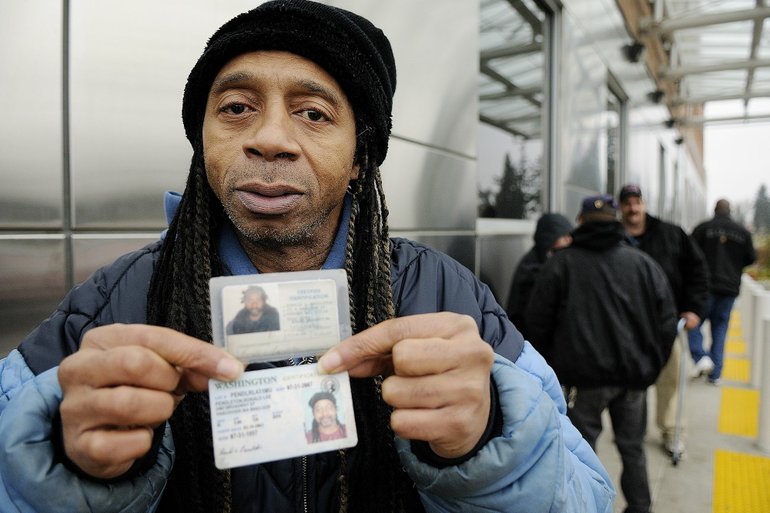Just around the corner and down the sidewalk, the place that saved their lives was going out of business.
Several graduates of the Northwest Deaf Addiction Center, joined by other members of Vancouver’s deaf community, gathered Tuesday morning to share their recovery stories.
They also shared concerns about the help that will be available for other deaf people dealing with addiction.
A Vancouver therapy provider, Lifeline Connections, graduated the Deaf Addiction Center’s last two clients Monday and then closed it Tuesday because of funding problems.
“I understand the economy is bad,” Byron Frazier said outside the county’s Center for Community Health, where the 16-bed inpatient facility was based. However, “The center is very important to me.”
It saved his life, Frazier explained.
In a written testimonial, Toni Oates also said that the center “saved my life.” She’s supporting other people now, but “I worry for the future of our deaf recovery community.”
Querida Yerkes, secretary of the Vancouver Association of the Deaf, called it the best program in the nation.
“I used to be a very bad addict,” Ronald Pendleton said through Angela Wonder, who provided American Sign Language interpretation for the group.
Pendleton cited heroin — he used the ASL gesture of injecting it into his arm — as well as crack cocaine and alcohol.
“I’ve been clean for seven years,” Pendleton said.
Several members of the group said that drugs were a way to deal with stress that was compounded by feelings of isolation.
“If you’re in pain, a relationship goes wrong, you lose a job, you can numb the pain,” David Hagen said.
“At the center, we learned how to use tools and get stronger and make better decisions when we get angry,” Hagen said.
Spencer Knight said that he grew up as a really angry kid. He became a playground bully because he enjoyed the feeling of power.
But on the other hand, Knight wrote, “I never had a friend.”
After hitting bottom and then winding up in the Deaf Addiction Center, “My world turned around and I have a lot of friends, true ones,” Knight wrote.
“I had a lot of frustration in not being able to communicate,” said Richard Rummery.
He wound up in prison and got involved with a gang, which provided something resembling a family. The local deaf recovery community is his family now, Rummery said.
Leaves a legacy
Lynn Samuelson, head of the agency that oversaw the center, called the financial crunch “a horrible situation.”
“This was an incredibly difficult decision to make,” said Samuelson, CEO of Lifeline Connections.
“It’s a very underserved population. Think about being in treatment; then think about being in treatment where you don’t speak the language,” Samuelson said.
Thanks to its graduates, the program leaves behind some long-term assets that will continue to benefit the community, Samuelson said.
“Vancouver has a very vibrant and active deaf recovery community. In Vancouver and Portland, you can attend a 12-step meeting that is signed any day of the week,” Samuelson said. “That was unheard of eight years ago.”
And another resource that didn’t exist before is the only deaf Oxford House program in the country. Vancouver has one house for deaf men living together in recovery and another for deaf women.
“I have to credit our staff for being involved there,” Samuelson said. “Initially, we had to fight some battles to make that happen.”
A few years ago, the center was a regional resource that averaged 12 or 13 residents at a time. But referrals from state-sponsored programs dropped sharply. The center lost $171,125 in the fiscal year that ended June 30, and it’s lost $50,487 in the first four months of this fiscal year.
With the closure of the residential program, Lifeline Connections will expand outpatient services and try to integrate deaf clients into other programs, Samuelson said.
Yerkes, secretary of the local deaf association, said she plans to work on founding a halfway house where addicts can be supported by their deaf peers.




